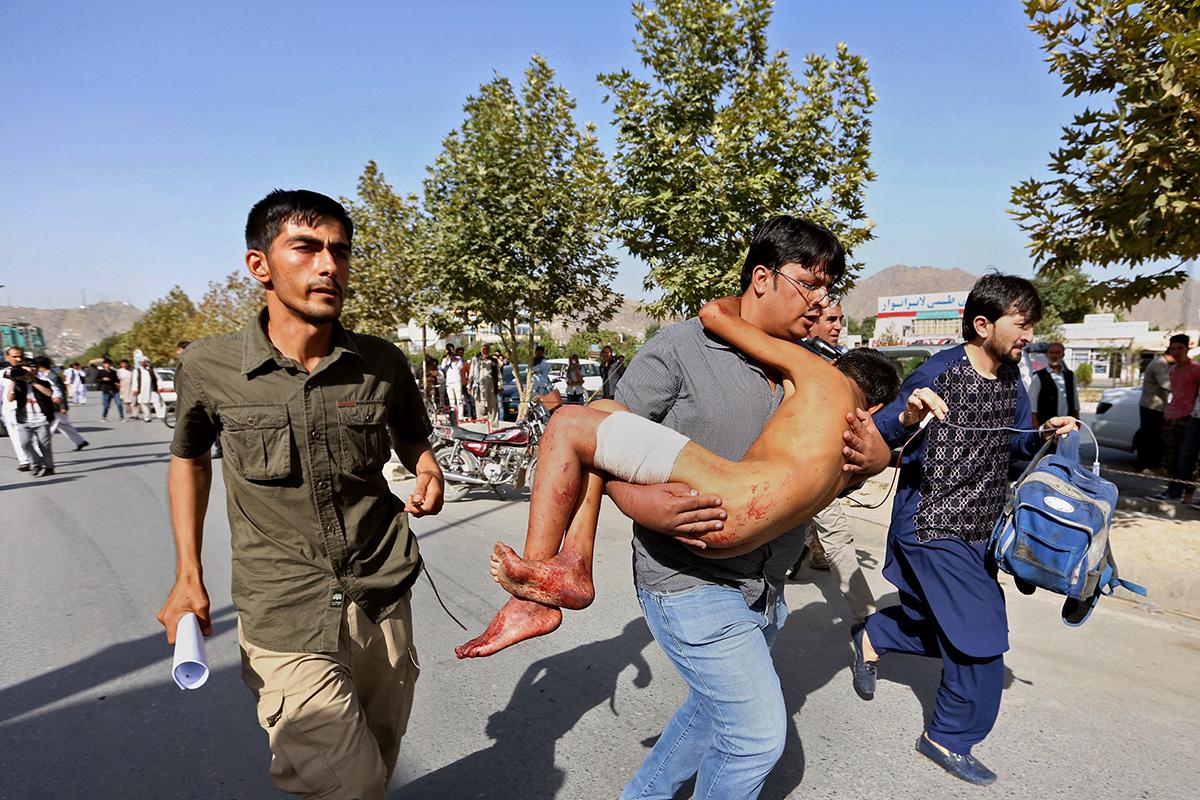Kabul explosion: At least 80 dead and hundreds injured as Isis claim blast at protest march
The blast took place during a protest march staged by the Hazara community over plans for a controversial new power line, which they say bypasses their home province.

Your support helps us to tell the story
From reproductive rights to climate change to Big Tech, The Independent is on the ground when the story is developing. Whether it's investigating the financials of Elon Musk's pro-Trump PAC or producing our latest documentary, 'The A Word', which shines a light on the American women fighting for reproductive rights, we know how important it is to parse out the facts from the messaging.
At such a critical moment in US history, we need reporters on the ground. Your donation allows us to keep sending journalists to speak to both sides of the story.
The Independent is trusted by Americans across the entire political spectrum. And unlike many other quality news outlets, we choose not to lock Americans out of our reporting and analysis with paywalls. We believe quality journalism should be available to everyone, paid for by those who can afford it.
Your support makes all the difference.At least 80 people have been killed and more than 200 wounded in an explosion targetting a large demonstration in Kabul, Afghanistan – a blast that has been claimed by Isis. If confirmed, it would be the first time the jihadist group has launched a major attack in the country and the first time it has targeted the capital.
Thousands of members of the Afghan Hazara minority group had been marching through the city during the planned protest over plans for a controversial new power line, which they say bypasses their home province.
Local news sources have reported that a suicide bomber was behind the blast – with a statement on the Isis-linked Aamaq news agency claiming that two attackers detonated explosive vests. However, officials are yet to confirm the cause.
Afghanistan's Interior Ministry said that at least 80 people were dead and 231 were injured.
The country's President Ashraf Ghani, speaking live on television, said that Sunday would be a national day of mourning.
Waheed Majroeh, the head of international relations for the Ministry of Public Health, said the death toll was likely to rise “as the condition of many of the injured is very serious".
Police were said to be transporting individuals to hospital after the blast took place in Deh Mazang square.
The spokesman for President Ghani told Associated Press that the central government had shared intelligence with the organisers of the protest, warning that the marchers faced a possible “terrorist attack".
“We knew that terrorists wanted to bring sectarianism to Kabul, and cause splits within our community,” he said.
He says he the president will meet leaders of the Hazara demonstrators later today. Many of the leaders did not attend Saturday's demonstration.
Eyewitness Ramin Anwari described seeing up to eight bodies in the Demazang area, where protesters were preparing to set up a camp after the four-hour march. He had no further details.
A large part of the city centre had been sealed off for the protest march.
The demonstrators had reportedly waved banners and chanted “death to discrimination”, in reaction to the plans for a 500kV power transmission line to be built from Turkmenistan to Kabul — bypassing areas with large Hazara communities.
One of the march organisers Laila Mohammadi said she arrived at the scene soon after the blast and saw “many dead and wounded people".
In a statement, President Ghani said: “Peaceful demonstrations are the right of every citizen of Afghanistan and the government will do everything it can to provide them with security."
Violence had been feared at what was the second demonstration by Hazaras over the power line issue.
A similar protest held in May attracted tens of thousands of people, causing the central business district to be closed off.
The TUTAP (Turkmenistan, Uzbekistan, Tajikistan, Afghanistan and Pakistan) power line is backed by the Asian Development Bank and originally connected through Bamiyan province, in the central highlands, where most of the country's Hazaras live.
That power line route was changed in 2013 by the previous Afghan government. Leaders of the marches have said that the rerouting was evidence of bias against the Hazara community, which accounts for up to 15 per cent of Afghanistan's estimated 30 million-strong population.
They are considered the poorest of the country's ethnic groups, and have suffered a history of discrimination.
Afghanistan is desperately short of power, with less than 40 per cent of the population connected to the national grid, according to the World Bank. Almost 75 per cent of electricity is imported.
Additional reporting from AP
Join our commenting forum
Join thought-provoking conversations, follow other Independent readers and see their replies
Comments